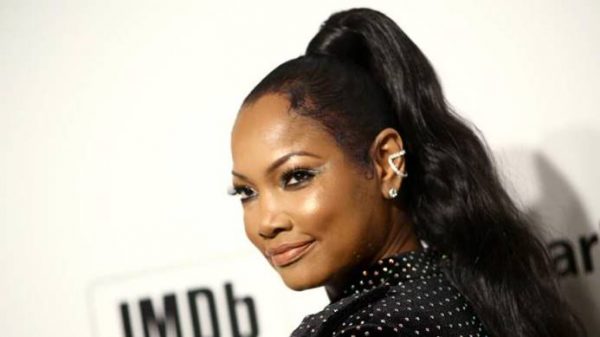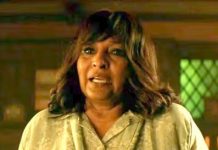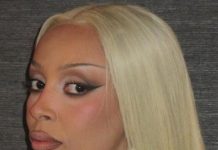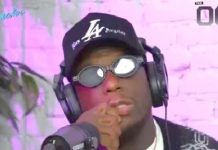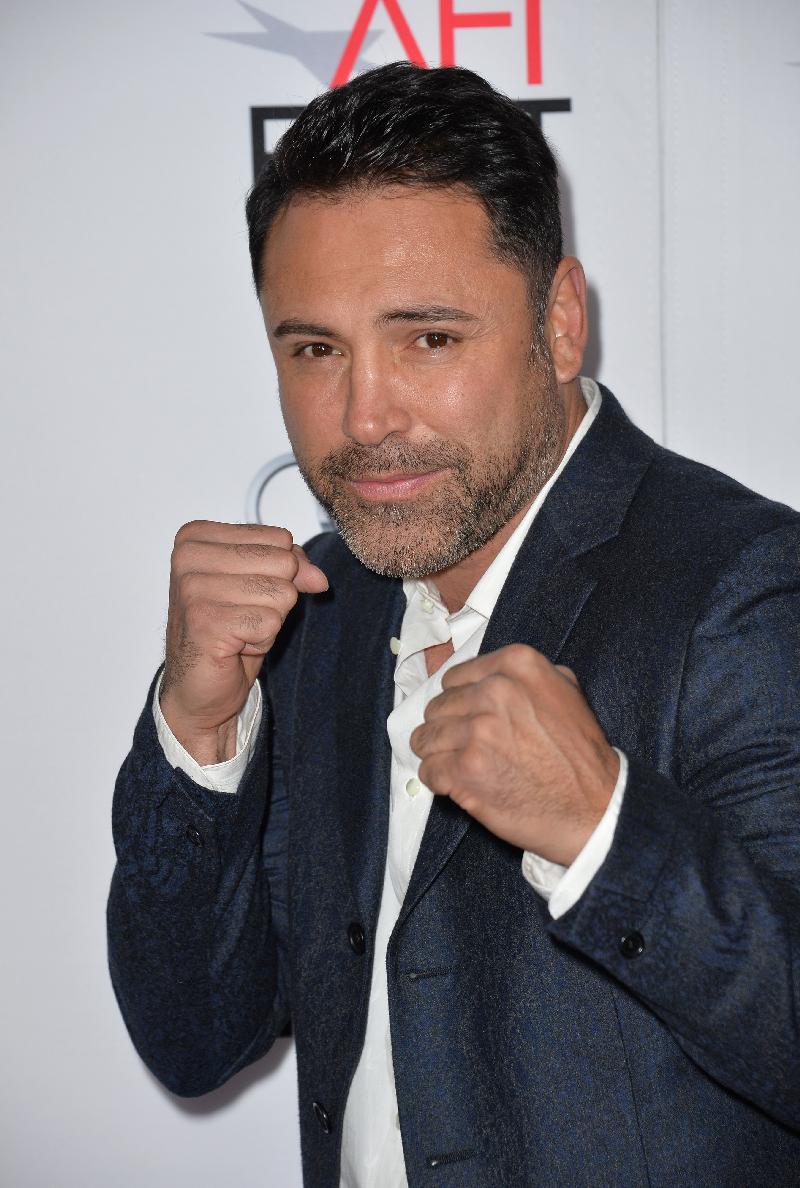
*Oscar De La Hoya charmed the world when, at eighteen, he took home the gold medal from the 1992 Olympics, launching his professional boxing career and earning him his famous moniker, The Golden Boy. He went on to win ten world championships across six different weight divisions making him one of the most celebrated professional fighters in the sport’s storied history. The impoverished young boy from East Los Angeles had arrived, and the city made him their hometown hero, eventually erecting a statue in his honor in 2008 (created by Erik Blome) which sits on the grounds of the Crypto.com arena.
De La Hoya launched his Oscar De La Hoya Foundation, giving back to the residents of East LA, and furthering his Golden Boy image.
Internally, De La Hoya was feeling crippled from a childhood filled with trauma and abuse, and cracks in his well-crafted image began to show. In the early 2000s, he walked away from his ex-partner, model, and media personality Shanna Moakler and their then-young daughter, Atiana De La Hoya. His two other now-adult children, Jacob and Devon, suffered the same fate with an absent De La Hoya during their upbringings. Problems compounded when a burned-out De La Hoya all but threw a fight against Manny Pacquiao after eight painful rounds, marking the beginning of the end of his boxing career.
Substance abuse and questionable romantic entanglements followed, as did scandal and multiple lawsuits. The former boxing champ eventually rebounded with Golden Boy Promotions, De La Hoya’s national boxing promotion company, which promotes some of the biggest and highest-grossing events in the sport of boxing.
I sat down with Oscar De La Hoya to unpack his life and career, which has been filled with iconic highs and devastating lows, and to learn about where he is now after years of healing and mending his personal relationships.
Allison Kugel: When I was telling my team about our interview, one of them said, “Oh, he’s somebody!” My first reaction was, “Yes, he is!” Then I thought about what makes someone a “somebody.” Is it how much money you have? How popular you are? How many people will show up to your funeral? Or is it really how many people you have in your life who love you, not because of what you can give them or what you’ve achieved, but simply because of who you are? Does that resonate with you?
Oscar De La Hoya: Oh, yes. We are all somebody, right? It’s funny you say that because I was always somebody when I was at the height of my career; when I won the Olympics, when I got back from the Olympics and won world [boxing] titles. I felt like I was somebody to everybody. Everybody knew who I was. Everybody knew The Golden Boy Oscar, the Gold Medalist, the World Champion. And now that I’m going through this process of finding myself, I don’t need that validation anymore. I’m somebody to someone who loves me. I’m somebody to someone who really cares for me and wants to make time to know me, so that is what I care about now. I’m no longer just somebody because I’m “The Golden Boy.”
Allison Kugel: Right. I feel like in your documentary film (The Golden Boy, out July 24th on HBO and MAX streaming), when you were talking about your life from childhood and then through the height of your boxing career, that was all you wanted. You wanted someone to say, “I love you. I see you. I hear you. You’re important to me because you are you.”
Oscar De La Hoya: Yes, and all these years I was just going through the motions. I was training, fighting, making appearances, having meetings, getting pulled left and right, and traveling. I just never had the chance to say, “Hello! I’m right here. Do you know who I really am? Do you care to even know?” The years go by so fast when you are living that moment every single day, every single minute of my life. I was always surrounded by people, all the time. A lot of times I was surrounded by people I didn’t even know, and so what people have to realize is that when you are by yourself and you have those thoughts in your head, and people are not pulling you left and right, and you’re not “The Golden Boy,” then who are you? After I retired from boxing I kind of lost myself. I lost my identity. I lost who I was. I was this [mentally and physically] conditioned kid at six years old who had to be the champion of the world for everybody.
Allison Kugel: In the beginning of the documentary there is footage of you as a six-year-old boy in a boxing ring, fighting in amateur fights that your father had you boxing in. Was that your normal at that age, since you didn’t know any different?
Oscar De La Hoya: It became normal because that is exactly what I had to do. That is what my father forced me to do. At that age when I won my first fight at six years old, my life changed. I remember when I was like ten, eleven years old feeling like my family was changing towards me. Now I’ve become this commodity. Like, “If I help little Oscar right now as a kid and buy him some boxing gloves or little hand wraps, maybe he will remember, and he can help me out when he’s older and has money.” I felt like that my whole life.
Allison Kugel: Wow! Do you have anyone in your life, now, who tells you they love you and that they are proud of you? I hope you do.
Oscar De La Hoya: Yes, my girlfriend (fitness model, Holly Sonders). She is the one person who tells me that, and she is my best friend. She tells me all the time, “My gosh, you’re doing great. You’re good. You’re a great person. I’m proud of you.” There is a part of me that thinks, “Wait, why are you telling me this? Are you sure?” It’s that kid coming out because I was conditioned so much. It wasn’t love back then. It was just like, “Okay, Oscar is the ‘chosen one.’ Let’s see what we can get out of it.”
Allison Kugel: It’s crazy that it was prophetic in a way. Your father said to you, “You’re the one. You’re going to take us out of these circumstances.” What is crazy about it is, you did become extraordinarily wealthy, and you did, in fact, give back to the people of East LA. That’s a lot to put on a kid, but at the same time, he was right.
Oscar De La Hoya: Exactly. It is very strange, and it’s those exact demons and confusion that I had to fight with all the time. My life has been so confusing because nobody gave me a handbook after I won the Gold Medal at 18 years old. No one gave me a handbook and said, “This is what your life is going to be, and these are the correct decisions to make. This is right from wrong.” Nobody ever explained to me what life is all about. I never had my mother sit me down, or my father, and tell me, “Son, this is going to happen in life.” I never had that. I had to learn along the way.
Allison Kugel: How old were you when you got your first $20 million check?
Oscar De La Hoya: I was about 22…
Allison Kugel: So, you’re 22, learning along the way, and you are given this huge sum of money and no instructions on how to navigate it all.
Oscar De La Hoya: Right and all I want to do is just have fun.
Allison Kugel: Of course (laugh)!
Oscar De La Hoya: People who were around me said, “Let’s travel. Let’s do this.” It was all reckless, and I’m just very fortunate I’m still alive. I think I’ve thought about committing suicide three times. I’ve been depressed 10 times over the course of my life. Luckily, I did have boxing as an outlet. The ring was my safe place, believe it or not. Getting hit, and punching someone, was my safe place. That is how much the struggle was outside of the ring.
Allison Kugel: Was it that you were in the zone when you were boxing like everything else went away? Or was it a way to get the anger and the rage out?
Oscar De La Hoya: It was a way to get the anger and the rage out. I remember picturing my mom’s face in my opponents, and literally just getting angry. That is how bad it was at one point, and I’m lucky that I was able to manage it and kind of control it just inside the ring, to have it inside the ring and not outside of the ring, because who knows what I would have done.
Allison Kugel: I interviewed Mike Tyson years ago and he said, “I came to the conclusion at a young age that I couldn’t be the best and be happy. So, I chose to be the best and to sacrifice my own happiness.” Do you agree with that statement?
Oscar De La Hoya: I do agree with it now, but I didn’t realize what was happening as I was becoming this World Champion. As I was winning, I didn’t realize why I was winning. I didn’t understand why I had all this anger. It was all just normal. I was abused at home, physically and emotionally, but I just kept living my life. I would go to school as a kid, and I was always the quiet one. I was the shy one, and the kid who never had money. I was always made fun of. Boxing, for a strange reason, was my happy place. It was where I can get beat up and hit you back. Psychologically, it kind of screwed with me, but I never thought that I was unhappy. It was so normal to be who I was as a kid.
Allison Kugel: I want to talk about fatherhood. Your three older kids were interviewed in this documentary. Your first child, Atiana, who you had with Shanna Moakler, what was it about fatherhood that spooked you to the point where you said, “I’m going to give this over to Shanna and Travis Barker (Moakler’s ex-husband), and I’m just going to kind of divorce myself from this situation? What happened there?
Oscar De La Hoya: I basically ran away. I was scared. I was fearful. I did try to be a father full-time for a few years, and it was beautiful. It was amazing to raise a little girl, but there came a point where you say to yourself, “Wait a minute. You’re not worthy of this.” You convince yourself that you are not worthy of that love, that it is not possible in your life, because of not receiving that love when I was a kid. My father never told me, “I love you.” My mother never told me she loved me. She never really gave me a hug. When I would cry, she would start hitting me. That is how bad it was.
Allison Kugel: Did she give you, “I’ll give you something to cry about?”
Oscar De La Hoya: Oh, I got that all the time. I know I can be a father, but it comes to the point where you convince yourself that this is not you. This is scary. You are not worthy of this. You are not worthy of giving love. Then you start feeling sorry for yourself. Life starts just spiraling and you’re lost. All you want to do is drink and do drugs and escape. Luckily for me, when I was boxing, it kept me in line. I didn’t drink until my last fight with Manny Pacquiao. That’s when I knew it was all over and I started drinking. I always felt like I wasn’t worthy of anything, like I wasn’t worthy of love, and I wasn’t worthy enough to do the job.
Allison Kugel: Have you forgiven your dad for the lack of a conventional childhood? Where are you with that?
Oscar De La Hoya: I will start with my mother because she passed in 1991. A few years ago I went to my mom’s grave and I had this big old ten-page letter. I go to her grave and I start crying. The first words from my mouth were, “I f*cking hate you.” I was so emotional about what she did to me and the love she didn’t give me. But, in the end, I was just so compassionate, and I said, “Mom, thank you and I love you.” I felt so free. With my father, he is still alive. He is still a hard a*s. He still is who he is. You saw him in the film (laugh). It’s funny because all these recent years I’ve been wanting to tell my father, “I love you,” but I just couldn’t do it. I didn’t know how to do it. I would play it in my head, and I always thought he would say, “What the hell are you talking about? What are you telling me you love me for? We are men. We are macho.” I remember one day a few years ago going up to him and saying, “You know what, Dad? I love you.” I hugged him and he told me back, “I love you,” and started crying. In my head, I thought he was going to punch me. It was the opposite. So, I freed myself from my father. Now, I understand that is how he grew up and what he learned. I’m not going to be that person, so I’m free from my past demons. I had to do a lot of therapy. I went through rehab; I don’t know how many times. Maybe because I didn’t belong there, or I did belong there, but I did it and all that work gives you the courage to just be yourself.
Allison Kugel: The ongoing media narrative throughout your boxing career was that you won the gold medal at the 1992 Olympics because it was your mother’s dying wish…
Oscar De La Hoya: That was all a lie.
Allison Kugel: Who manufactured that narrative?
Oscar De La Hoya: It just happened. I remember when I won the Gold Medal. I was on the podium and the National Anthem was playing, and I was just numb. I couldn’t cry. I couldn’t laugh. I couldn’t smile. I was just picturing [my mother’s] face, just numb. I got out of the ring and the commentator asked me, “How do you feel, doing it for your mom?” That’s when it took off. I was this shy kid from East LA. I don’t know how to act in front of the camera. I don’t know what to say, so you just go with it. It becomes overwhelming, and now that everyone is saying it, you don’t want to say, “Wait a minute, I didn’t say that.” You don’t want to disappoint people.
Allison Kugel: Since you struggled with your mental health and with substance abuse, do you try to stay on top of the mental and overall well-being of the fighters that your company, Golden Boy Promotions, represents?
Oscar De La Hoya: Of course. And I give help to the fighters who ask for it. I think we are living in a different time, and it’s a whole new generation where there is more compassion and more love in the household, but when you are a fighter and you are winning tournaments and being put on that pedestal, you have that pressure on you. I can imagine what they are going through, so if you ask me for help, I’m going to be more than happy to help you out and give you my experience and my take on what I lived through, but you only have to ask for it. I can’t force it upon you. I can’t come in and say, “I lived this, and I lived that, so therefore you should live by this too.” The way it works is, you have to ask for it yourself, and that is exactly what I did. I’m 50 years old and I finally asked for help. It’s never too late.
Allison Kugel: Because it was in the film, I want to ask you about some of the sexual assault lawsuits that came your way. It doesn’t seem to jive with the person that I’m looking at right now. Was it not being queued into someone else’s body language, or how they are feeling, like their nonverbal ques? Because you were living so high, were you just not thinking about the other person’s responses to your actions, per se, even though it wasn’t your intention to assault anyone? What was going on there?
Oscar De La Hoya: No. First of all, I would never hurt a fly. That is just who I am, but I think that I put myself in situations where I was vulnerable. For instance, you have this kid. Young, money, he’s outgoing, this and that. I put myself in situations where people thought, “Shit, I could take advantage of this kid.” I’m not that person. It is just not me, but if you put yourself in that situation, someone is bound to take advantage of you. Someone is bound to take advantage of that situation, of that kid who is naïve and young, who has money, and that is exactly what happened. I’ve never laid my hands on anybody. I would never, ever do that. I would never mistreat anyone. It is just not in my nature or how I grew up. I didn’t see that in my household. My father and mother had a distant relationship, but it was never abusive. It was never physical, so I never grew up with that. On the contrary, it’s like all I needed was love. All I needed was a hug, so all of these accusations, or whatever, is all they were. Accusations.
Allison Kugel: Are you saying you were targeted, financially?
Oscar De La Hoya: That was the goal, I would assume. I would assume that was the goal, but there is a reason why things were dropped, or things were dropped by the system. There are reasons for that. Anyone who knows me, knows that would never, ever be me.
Allison Kugel: Do you pray? And, if so, who or what do you pray to?
Oscar De La Hoya: I used to pray a lot. I still believe in my God as my higher power, but now that I’m in this state of mind for the past few years, at peace with myself and I’ve done all the work and continue to do the work, I don’t find myself praying like I used to pray. Now, I reassure myself, “Today is going to be a great day! You are a good person. You work hard. Go just be a good guy.” There really isn’t that much praying like before. Before, when I was lost, it was like, “Please, please I need your help!” and nothing happened. Now, I wake up every single morning and my girlfriend knows that I take my time for myself when I wake up. I say to myself, “Okay, just be you.” That has been working for me. The balance in my life now has been incredible.
Allison Kugel: I know you’ve mastered boxing, but beyond that, what have you mastered in your life, and what remains a work in progress?
Oscar De La Hoya: I think life is a big old work in progress. I play a lot of golf, and in golf you can never master the game. It’s impossible. If you shoot a low score, you can always shoot lower. Even Tiger Woods could never master the game. You can always get better. You can always shoot a better score, and I think life is like that. Even if you are on top of the mountain, there is always something you can work on. Life is all about growing, learning, and becoming better and good with yourself. I’m always searching to find peace, every single day.
Allison Kugel: Any final words of wisdom to share?
Oscar De La Hoya: I’m very fortunate to be alive because it could have ended quickly and easily at any point in my life. My number one rule that people should consider is to put yourself first. I think back when I was pleasing everyone else, and how kids today want to please their schoolmates. They have the pressure of being cool. Make yourself happy first, and then everything else will unfold and everything else is manageable and a bit easier to handle. You have to really sit down with yourself and ask yourself some tough questions. It’s all about communication.
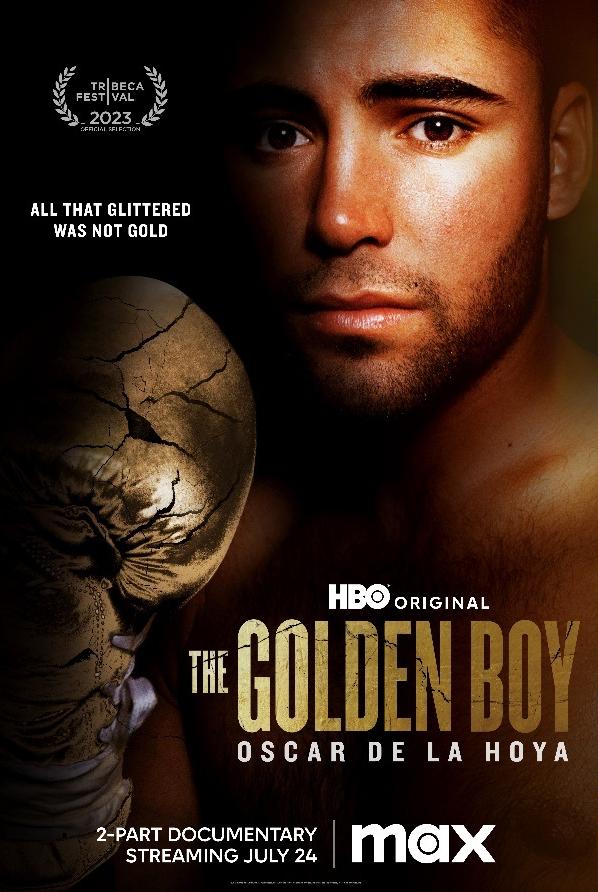
Oscar De La Hoya’s two-part documentary film, The Golden Boy, premieres July 24th at 9pm ET/PT on HBO and streaming on MAX. Image courtesy of HBO and MAX.
Watch or listen to the extended Oscar De La Hoya interview on the Allison Interviews Podcast at Apple, Spotify, or on YouTube.
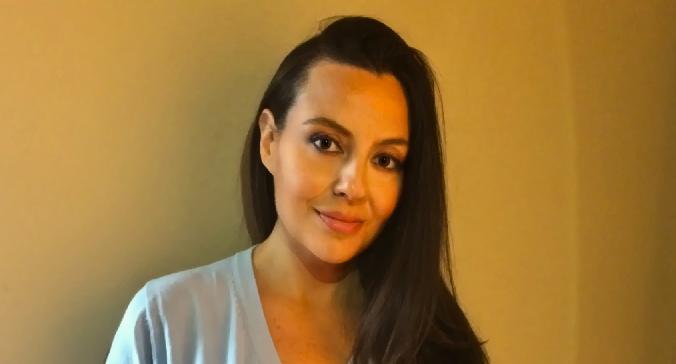
MORE NEWS ON EURWEB: ‘I Don’t Respect a Man That Dress in Drag’: Floyd Mayweather About Oscar De La Hoya
We Publish News 24/7. Don’t Miss A Story. Click HERE to SUBSCRIBE to Our Newsletter Now!


